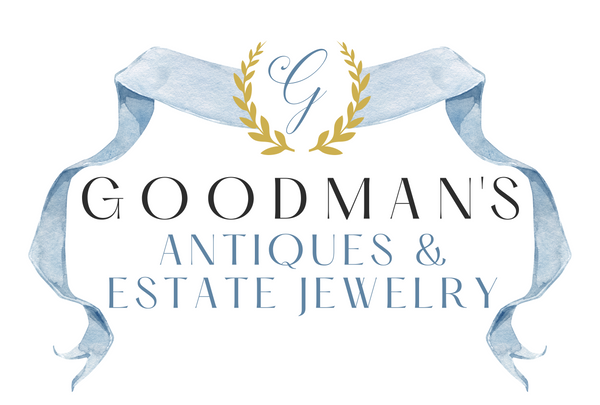George Betjemann & Sons "The Tantalus" Oak & Brass 3-Bottle Liquor Case
George Betjemann & Sons "The Tantalus" Oak & Brass 3-Bottle Liquor Case
Couldn't load pickup availability
Item: Liquor Case
Age: Circa 1885 (Patent Registered 1881)
Condition: Very good pre-owned antique condition. A number of small chips on the shoulders of all three decanters. Very small fleabite on lip of one decanter. Some wear on bottoms of decanters and center tops of stoppers where they contact the brass. Brass has patina consistent with age. No key is included hence the case does not lock, but the mechanism functions as it should and only opens when the lever is pressed. Please see photos.
Details: Rectangular, open oak case with brass locking mechanism, handle, and 3" high fitted oak frame for three decanters lined with green felt. The sides of the case are escutcheon-shaped with rounded tops to allow the mechanism to swing down to open. Locking mechanism is made of heavy brass with key barrel and sliding pin that extends through the lock and into the brass strap above, locking the strap in place. There are three square crystal decanters, each cut in a canework pattern with panelled corners and shoulders and a single number etched into the inside lip. Two of the round, faceted stoppers have corresponding numbers etched into the ground sides. The brass locking strap is stamped on the swinging end with makers crest and "The Tantalus". Locking end of strap is stamped with crest and ""BETJEMANN'S PATENT 22010 LONDON".
Share


































